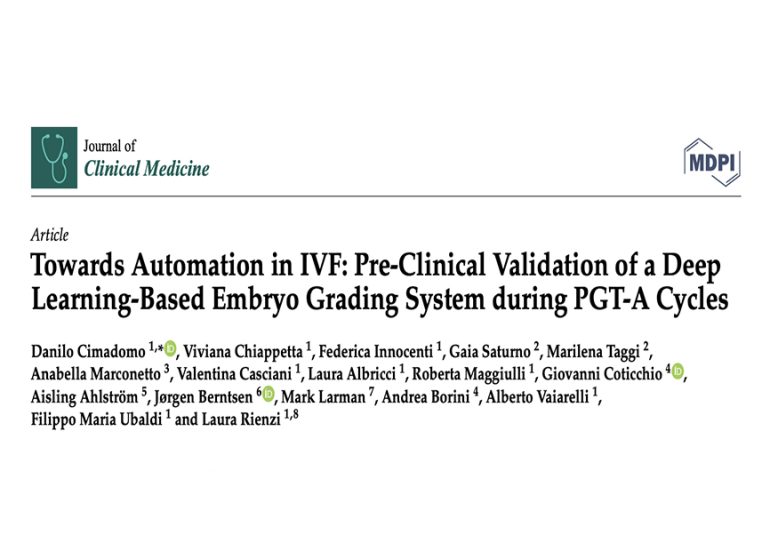
Danilo Cimadomo, Viviana Chiappetta, Federica Innocenti, Gaia Saturno, Marilena Taggi, Anabella Marconetto, Valentina Casciani, Laura Albricci, Roberta Maggiulli, Giovanni Coticchio, Aisling Ahlström, Jørgen Berntsen, Mark Larman, Andrea Borini, Alberto Vaiarelli, Filippo Maria Ubaldi and Laura Rienzi
Journal of Clinical Medicine, 2023 Feb 23;12(5):1806. doi: 10.3390/jcm12051806. Received: 22 December 2022 / Revised: 13 February 2023 / Accepted: 21 February 2023 / Published: 23 February 2023
Abstract
Preimplantation genetic testing for aneuploidies (PGT-A) is arguably the most effective embryo selection strategy. Nevertheless, it requires greater workload, costs, and expertise. Therefore, a quest towards user-friendly, non-invasive strategies is ongoing. Although insufficient to replace PGT-A, embryo morphological evaluation is significantly associated with embryonic competence, but scarcely reproducible. Recently, artificial intelligence-powered analyses have been proposed to objectify and automate image evaluations. iDAScore v1.0 is a deep-learning model based on a 3D convolutional neural network trained on time-lapse videos from implanted and non-implanted blastocysts. It is a decision support system for ranking blastocysts without manual input. This retro- spective, pre-clinical, external validation included 3604 blastocysts and 808 euploid transfers from 1232 cycles. All blastocysts were retrospectively assessed through the iDAScore v1.0; therefore, it did not influence embryologists’ decision-making process. iDAScore v1.0 was significantly associated with embryo morphology and competence, although AUCs for euploidy and live-birth prediction were 0.60 and 0.66, respectively, which is rather comparable to embryologists’ performance. Never- theless, iDAScore v1.0 is objective and reproducible, while embryologists’ evaluations are not. In a retrospective simulation, iDAScore v1.0 would have ranked euploid blastocysts as top quality in 63% of cases with one or more euploid and aneuploid blastocysts, and it would have questioned embryologists’ ranking in 48% of cases with two or more euploid blastocysts and one or more live birth. Therefore, iDAScore v1.0 may objectify embryologists’ evaluations, but randomized controlled trials are required to assess its clinical value.
